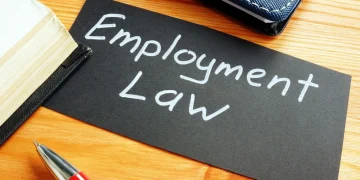Top Mistakes to Avoid in Real Estate Transactions typically fall into three buckets: weak or late disclosures, sloppy contracts and contingencies, and overlooked title or lien problems. Any one of these can delay closing, trigger lawsuits, or cost thousands in surprise repairs and fees.
This step-by-step guide explains how to avoid those traps, what clauses to include, which documents to verify, and how to build a clean paper trail from offer to recording of the deed. Use the checklists to stay organized whether you’re a first-time buyer, investor, or seller.
1) Disclosure mistakes that derail deals
Disclosure rules differ by jurisdiction, but the principle is the same: material defects must be revealed in writing. Buyers should demand, and sellers should provide, complete and timely disclosures.
- Undisclosed defects: Roof leaks, foundation cracks, prior water intrusion, mold, pests, or unpermitted work.
- Timing errors: Delivering the disclosure late can extend inspection periods or give buyers an easy exit.
- Vague language: “No known issues” without supporting invoices, reports, or dates invites disputes.
Tip for sellers: Attach receipts, contractor reports, permits, and dates. Specifics reduce liability and renegotiations.
Tip for buyers: Cross-check disclosures against inspection findings and municipal permit records.
2) Contract pitfalls: unclear terms and weak contingencies
The purchase agreement is your safety net. Gaps or ambiguous phrasing can shift risk onto you.
- Missing deadlines: Inspection, loan, appraisal, and title objection periods must be calendar-tracked with reminders.
- Earnest money ambiguity: Spell out when it becomes non-refundable and exactly what constitutes a default.
- Inspection scope: Reserve the right to general and specialist inspections (roof, sewer scope, structural, termites).
- Appraisal gap planning: Include an appraisal contingency and, if needed, an explicit cap on any gap coverage.
- Repairs vs. credits: Define whether seller will repair before close or provide a closing credit; specify licensed contractors and re-inspection rights.
- Personal property list: List included/excluded items (appliances, window treatments, sheds, EV chargers) to prevent last-minute fights.
Example protective language (edit to your jurisdiction)
Buyer’s Inspection Contingency:
Buyer shall have 10 business days after receipt of all seller disclosures to conduct
any inspections deemed necessary. Buyer may cancel or request repairs/credits in
writing during this period; otherwise, earnest money becomes non-refundable
subject to loan and title contingencies.3) Title issues that surface after you move in
A clean title ensures you actually own what you paid for. Common surprises include unpaid liens, boundary encroachments, easements, or errors in prior deeds.
- Skipping a full title search: Always order a professional title search with a comprehensive commitment that lists exceptions.
- Misreading exceptions: Understand easements, CC&Rs/HOA rules, mineral or air rights reservations, and survey matters.
- No owner’s title insurance: A one-time premium protects against many unknown or undiscovered defects.
- Survey/encroachment blind spots: Get a current survey or location drawing to confirm boundaries, fences, and additions.
Title objection window: Your contract should give you days to object in writing to title exceptions and require seller to cure or allow cancellation with earnest money return.
4) Financing and appraisal missteps
- Pre-approval vs. pre-qualification: Use a verified pre-approval with income and asset documentation.
- Rate-lock timing: Confirm length, extension fees, and contingency if closing slides.
- Large purchases mid-escrow: Don’t open new credit lines or buy a car; it can tank your debt-to-income ratio.
- Low appraisal reaction plan: Renegotiate price, split the difference, or walk via the contingency.
5) Inspection oversights and due diligence gaps
- Waiving inspections: Highly risky unless you are a professional or pricing reflects as-is condition.
- Specialist reports: Order sewer scope, chimney, radon, pool, or structural engineer as indicated.
- Insurance history: Ask for prior claim history where available and get a homeowner’s insurance quote early.
- Environmental checks: Flood zone, wildfire risk, historic contamination, or nearby developments.
6) Closing/escrow errors that cost money
- Wire fraud: Verify wiring instructions by phone using a known number. Never rely solely on emailed instructions.
- HUD/CD surprises: Review the Closing Disclosure/settlement statement 3 days in advance; verify prorations, credits, and fees.
- Unmet lender conditions: Clear all “prior-to-funding” conditions (insurance binder, final VOE, appraisal revisions).
- Walk-through misses: Re-check repairs, receipts, utilities, and included items within 24 hours of close.
7) Seller-specific mistakes
- Pricing without data: Use comps, condition adjustments, and market trend analysis.
- Poor prep: Pre-list repairs and a pre-inspection can prevent escrow renegotiations.
- Contract sloppiness: Confirm buyer financing type, appraisal/inspection timelines, and earnest money terms before accepting.
8) Buyer-specific mistakes
- Emotional bidding: Set a ceiling and pair any escalation clause with a cap and proof of competing offers.
- Contingency removal too early: Don’t waive until you have satisfactory reports and loan approval.
- Ignoring HOA docs: Read CC&Rs, budgets, reserves, rules on rentals, pets, parking, and special assessments.
Quick checklist: a clean path to close
- Signed, complete disclosures + receipts and permits.
- Inspection(s) ordered day one; specialist add-ons as needed.
- Title commitment reviewed; survey ordered; objections calendared.
- Loan pre-approval verified; rate-lock strategy set.
- Appraisal and underwriting conditions tracked to “clear to close.”
- Settlement statement audited; wire instructions verified by phone.
- Final walk-through with repair receipts and utilities confirmed.
- Execute & record deed; store all docs in secure cloud + physical file.
Real estate problems rarely come from one big mistake—they come from a series of small, preventable lapses. Tight disclosures, precise contract language, and thorough title work are your best defense.
© 2025 OmarosaOmarosa.com — This guide is general information, not legal advice. Always consult a licensed real estate professional or attorney in your jurisdiction.









